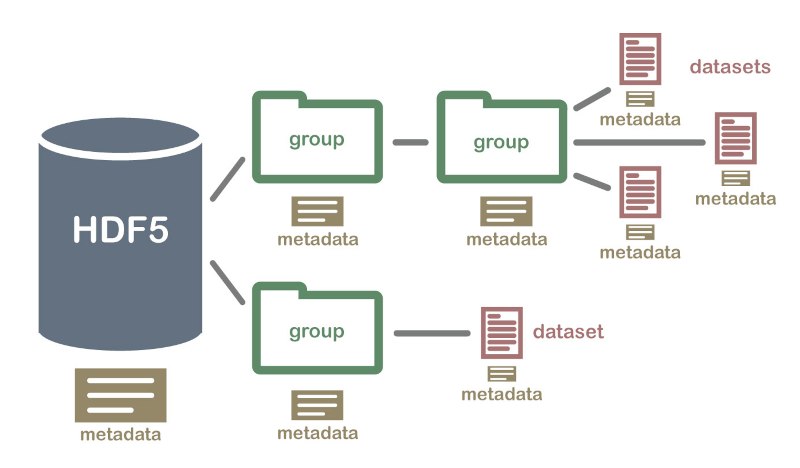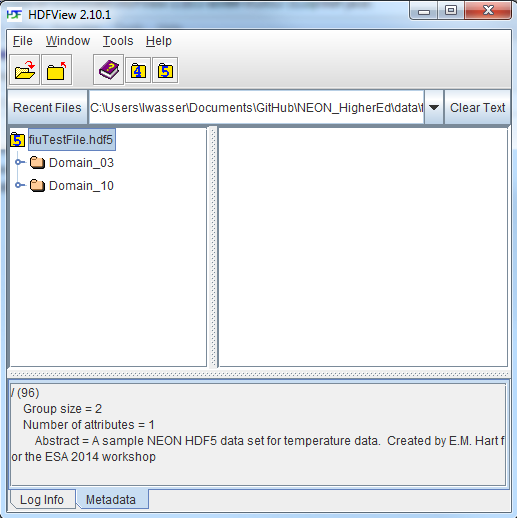It is highly recommended that you use a pre-built version of h5py, either from aPython Distribution, an OS-specific package manager, or a pre-built wheel fromPyPI.
Install Hdf5 Library Ubuntu
Be aware however that most pre-built versions lack MPI support, and that theyare built against a specific version of HDF5. If you require MPI support, ornewer HDF5 features, you will need to build from source.

Headers are 1.10.4, library is 1.10.5 SUMMARY OF THE HDF5 CONFIGURATION General Information: - HDF5 Version: 1.10.5 Configured on: 2019-03-04 Configured by: Visual Studio 14 2015 Win64 Host system: Windows-10.0.17763 Uname information: Windows Byte sex: little-endian Installation point: C:/Program Files/HDF5 Compiling Options: - Build Mode: Debugging Symbols: Asserts: Profiling: Optimization Level: Linking Options: - Libraries: Statically Linked Executables: OFF LDFLAGS. I want to install hdf5 library in a local directory on a Centos cluster. My MKLROOT is /opt/intel/compilersandlibraries2020.2.254/linux/mkl My hdf5 library is hdf5.
After installing h5py, you should run the tests to be sure that everything wasinstalled correctly. This can be done in the python interpreter via:
Pre-built installation (recommended)¶
Pre-build h5py can be installed via many Python Distributions, OS-specificpackage managers, or via h5py wheels.
Python Distributions¶
If you do not already use a Python Distribution, we recommend eitherAnaconda/MinicondaorEnthought Canopy, both of whichsupport most versions of Microsoft Windows, OSX/MacOS, and a variety of LinuxDistributions. Installation of h5py can be done on the command line via:
for Anaconda/MiniConda, and via:
for Canopy.
Wheels¶
If you have an existing Python installation (e.g. a python.org download,or one that comes with your OS), then on Windows, MacOS/OSX, andLinux on Intel computers, pre-built h5py wheels can be installed via pip fromPyPI:
Additionally, for Windows users, Chris Gohlke provides third-party wheelswhich use Intel’s MKL.
OS-Specific Package Managers¶
On OSX/MacOS, h5py can be installed via Homebrew,Macports, or Fink.
The current state of h5py in various Linux Distributions can be seen athttps://pkgs.org/download/python-h5py, and can be installed via the packagemanager.
As far as the h5py developers know, none of the Windows package managers (e.g.Chocolatey, nuget)have h5py included, however they may assist in installing h5py’s requirementswhen building from source.
Source installation¶
To install h5py from source, you need:
- A supported Python version with development headers
- HDF5 1.8.4 or newer with development headers
- A C compiler
On Unix platforms, you also need pkg-config unless you explicitly specifya path for HDF5 as described in Custom installation.
There are notes below on installing HDF5, Python and a C compiler on differentplatforms.
Building h5py also requires several Python packages, but in most cases pip willautomatically install these in a build environment for you, so you don’t need todeal with them manually. See Development installation for a list.
The actual installation of h5py should be done via:
or, from a tarball or git checkout:
Development installation¶
When modifying h5py, you often want to reinstall it quickly to test your changes.To benefit from caching and use NumPy & Cython from your existing Pythonenvironment, run:
For convenience, these commands are also in a script dev-install.sh in theh5py git repository.
This skips setting up a build environment, so you shouldhave already installed Cython, NumPy, pkgconfig (a Python interface topkg-config) and mpi4py (if you want MPI integration - see Building against Parallel HDF5).See setup.py for minimum versions.
This will normally rebuild Cython files automatically when they change, butsometimes it may be necessary to force a full rebuild. The easiest way toachieve this is to discard everything but the code committed to git. In the rootof your git checkout, run:
Install Hdf5 Library
Then build h5py again as above.
Source installation on OSX/MacOS¶
HDF5 and Python are most likely in your package manager (e.g. Homebrew,Macports, or Fink).Be sure to install the development headers, as sometimes they are not includedin the main package.
XCode comes with a C compiler (clang), and your package manager will likely haveother C compilers for you to install.
Source installation on Linux/Other Unix¶

HDF5 and Python are most likely in your package manager. A C compiler almostdefinitely is, usually there is some kind of metapackage to install thedefault build tools, e.g. build-essential, which should be sufficient for ourneeds. Make sure that that you have the development headers, as they areusually not installed by default. They can usually be found in python-dev orsimilar and libhdf5-dev or similar.
Source installation on Windows¶
Installing from source on Windows is a much more difficult prospect thaninstalling from source on other OSs, as not only are you likely to need tocompile HDF5 from source, everything must be built with the correct version ofVisual Studio. Additional patches are also needed to HDF5 to get HDF5 and Pythonto work together.
We recommend examining the appveyor build scripts, and using those to build andinstall HDF5 and h5py.
Custom installation¶
Important
Remember that pip installs wheels by default.To perform a custom installation with pip, you should use:
or build from a git checkout or downloaded tarball to avoid gettinga pre-built version of h5py.
You can specify build options for h5py as environment variables when you buildit from source:
The supported build options are:


- To specify where to find HDF5, use one of these options:
HDF5_LIBDIRandHDF5_INCLUDEDIR: the directory containing thecompiled HDF5 libraries and the directory containing the C header files,respectively.HDF5_DIR: a shortcut for common installations, a directory withlibandincludesubdirectories containing compiled libraries and C headers.HDF5_PKGCONFIG_NAME: A name to querypkg-configfor.If none of these options are specified, h5py will querypkg-configbydefault forhdf5, orhdf5-openmpiif building with MPI support.
HDF5_MPI=ONto build with MPI integration - see Building against Parallel HDF5.HDF5_VERSIONto force a specified HDF5 version. In most cases, you don’tneed to set this; the version number will be detected from the HDF5 library.H5PY_SYSTEM_LZF=1to build the bundled LZF compression filter(see Filter pipeline) against an external LZF library, rather thanusing the bundled LZF C code.
Building against Parallel HDF5¶

If you just want to build with mpicc, and don’t care about using ParallelHDF5 features in h5py itself:
If you want access to the full Parallel HDF5 feature set in h5py(Parallel HDF5), you will further have to build in MPI mode. This can be doneby setting the HDF5_MPI environment variable:
You will need a shared-library build of Parallel HDF5 as well, i.e. built with./configure--enable-shared--enable-parallel.